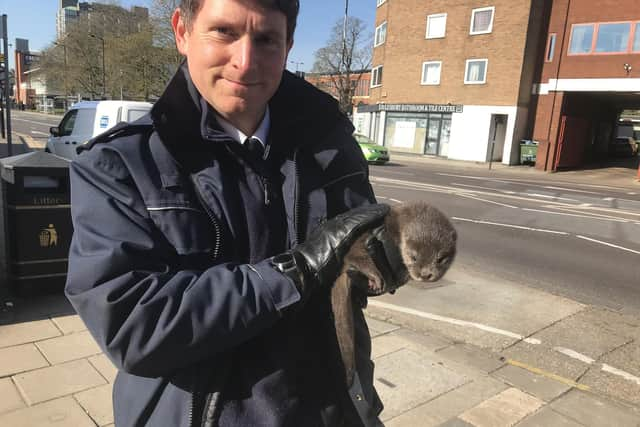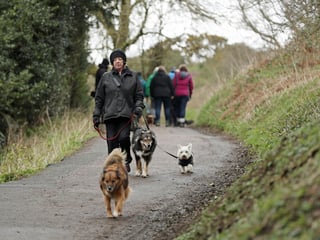Coronavirus: Animals in need of emergency help still able to get support from RSPCA front-line workers
and live on Freeview channel 276
An emergency-only service is being provided by the animal charity through the coronavirus crisis, with a team of front-line officers, 17 animal centres, four wildlife and four animal hospitals across England and Wales.
Chief executive Chris Sherwood said: ‘We’ve taken steps to make sure that we are dealing with emergency cases only so we can play our part in stopping the spread of this virus and safeguard our staff and volunteers.


Advertisement
Hide AdAdvertisement
Hide Ad‘We rely on the public’s help and we would ask them to only call our helpline in an emergency and visit our website for all other enquiries.’
Front-line officers are wearing protective clothing, regularly washing hands before and after handling animals, avoiding entering premises and asking people to bring animals to the door where appropriate and keeping their vans clean.
Four wildlife centre teams are still working around the clock to help rehabilitate and release sick and injured wild animals. If you find a sick or injured wild animal, contact the emergency line on 0300 1234 999.
There are more than 150 RSPCA branches, registered charities in their own right, including the Stubbington Ark which has been closed to the public along with its shops.
Advertisement
Hide AdAdvertisement
Hide AdThe team is working to look after the animals in their care, and has thanked those who donate on a monthly basis.
If you wish to set up a PayPal payment or make a BACS transfer, contact [email protected] for more details. The PayPal address is [email protected].
Chris added: ‘We know these are really worrying times for everyone and I hope hearing that we are still helping animals is a little piece of good news.
‘We know many people will be financially worse off as a result of this crisis but if anyone is in a position to make a donation to help our services continue we would really appreciate it.’
Coronavirus: the facts
What is coronavirus?
Advertisement
Hide AdAdvertisement
Hide AdCovid-19 is a respiratory illness that can affect lungs and airways. It is caused by a virus called coronavirus.
What caused coronavirus?
The outbreak started in Wuhan in China in December 2019 and it is thought that the virus, like others of its kind, has come from animals.
How is it spread?
As this is such a new illness, experts still aren’t sure how it is spread. But similar viruses are spread in cough droplets. Therefore covering your nose and mouth when sneezing and coughing, and disposing of used tissues straight away is advised. Viruses like coronavirus cannot live outside the body for very long.
What are the symptoms?
The NHS states that the symptoms are: a dry cough, high temperature and shortness of breath - but these symptoms do not necessarily mean you have the illness. Look out for flu-like symptoms, such as aches and pains, nasal congestion, runny nose and a sore throat. It’s important to remember that some people may become infected but won’t develop any symptoms or feel unwell.
What precautions can be taken?
Washing your hands with soap and water thoroughly. The NHS also advises to cover your mouth and nose with a tissue or your sleeve (not your hands) when you cough or sneeze; put used tissues in the bin immediately and try to avoid close contact with people who are unwell. Also avoiding touching eyes, nose and mouth unless your hands are clean.
Sources: World Health Organisation and NHS
Comment Guidelines
National World encourages reader discussion on our stories. User feedback, insights and back-and-forth exchanges add a rich layer of context to reporting. Please review our Community Guidelines before commenting.
